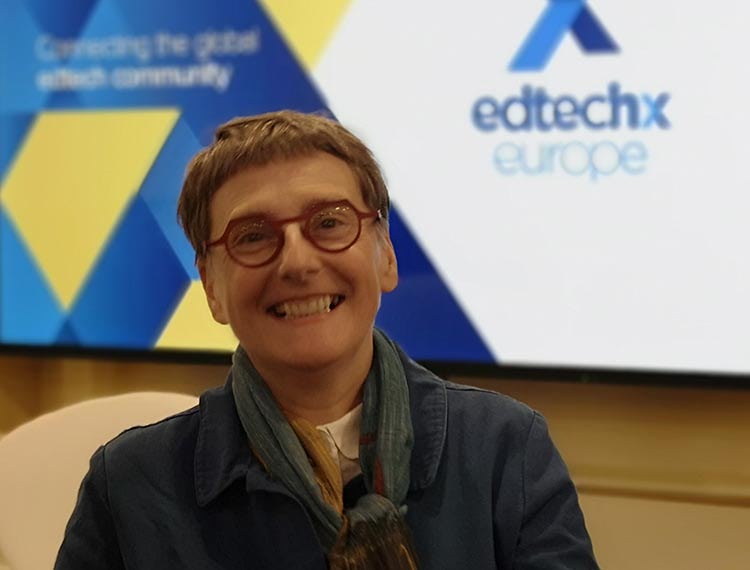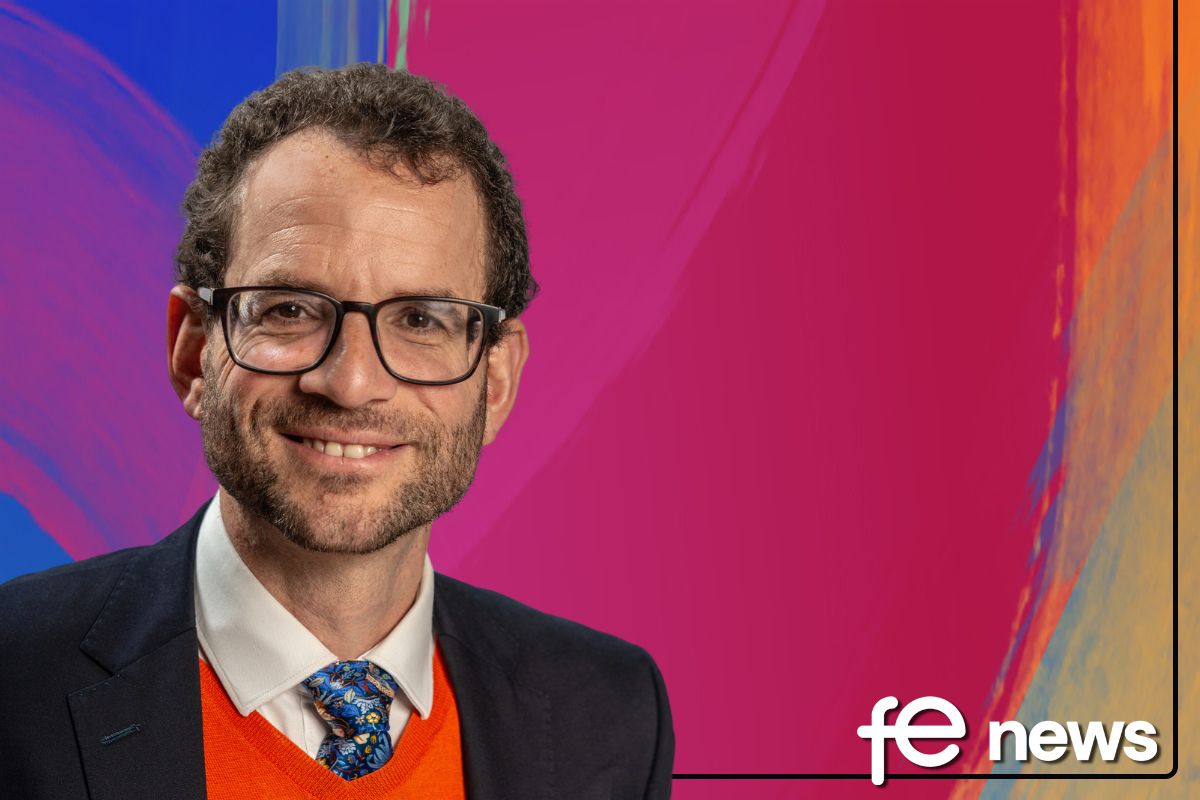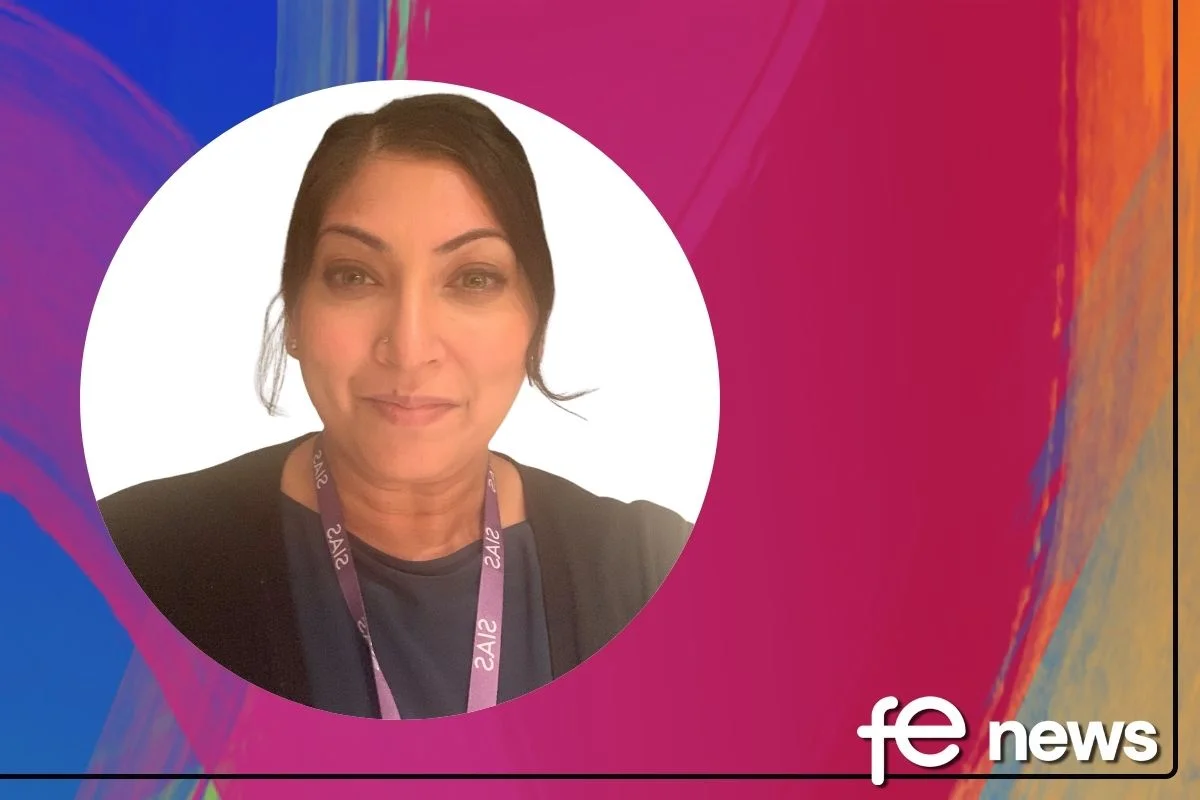The essential role of Teachers in the #FutureofEducation

How can we adapt learning to meet the needs of global education in the 21st Century?
I think global education is a bit of a misnomer because there’s one thing about education that quite often doesn’t come to the fore, and it’s the fact that education is very very contextualised, so there’s no such thing as global education.
There is such a thing as global education challenges, even if they’re different in different countries. We are living in a global world, and we are all facing certain challenges that we will have to resolve as a global bunch of people.
Climate change is one one of those challenges that will need all of us to really collaborate and work together, and create a global connection to solve that problem.
Education is contextual, not universal
If you take it back to the education systems, which is what drives education in most countries, you’re dealing with a variety of layers, and levels, from policy to institutions, all kinds of systems. That kind of makes the global question a little bit harder.
Obviously every country will have its own local education systems, that can be ruled by either localities, national government, a mix of both. Then you also, in a lot of countries, have got independent and private sectors who do their own kind of ruling. It is very localised, so coming up with a kind of global answer is actually quite difficult in this question.
If there’s one thing I would like to emphasise is that education is contextual, it’s a local thing, it’s also a very cultural thing. We shouldn’t eradicate that from the discussion because we’re talking about technology that needs to scale.
So, that’s one of the sort of misnomers I want to get out of the way.
Despite the problems of the world, and the issues that we have to deal with, especially the next generations will have to deal with. This also provides a huge amount of opportunity for people to learn, and for education to come up with possibly some new formulae, to make that happen.
Educating young people about the need to continually to learn
We can’t just stick to learning the way I learned at school, which was academically pretty sound, but actually when I deal with the workplace I now learn in a completely different way.
I learn every day, I constantly learn, my head sometimes explodes! But, it is what I have to do to remain relevant. That is what we will all have to do, and continue to do to make this work.
How we frame that it in an educational context, and how we make kids aware that this is going to be how they need to continue to learn, to thrive in the world, that is a global challenge. That is what education does have in common. So, there are some challenges that we can address at the global level.
We all are talking about: We need to have competency, skills, all this needs to be scaled to the global level. That is absolutely true.
How that than gets manifested, and how that then gets translated has to happen at a local level, bearing the local context into account.
Engaging more with solving problems
A key opportunity for me in education now is, how do we get kids to engage more with solving problems? Not just eradicating the fact that they also need some knowledge, because actually they need to have a level of abstraction in their thinking that they can apply to that problem solving.
A lot of people say, “they can just find it all on Google”. Maybe they can find it all on Google, but actually what is the “it”?
How do they look at the “it”, and how do they differentiate between the “it” being the “it” that is right, and the “it” that is false? The “it” that they actually need to interpret, to apply to the problem solving. So, there’s lots of “its” that they need to engage with, and that that’s why we still need that education.
The essential role of Teachers
That’s why we definitely need teachers. Some people now start calling them mentors, some people start calling them curators, but it’s more than that. We must not forget that education is a social, and also a very emotional thing.
If kids don’t feel included, if learners don’t feel included they will not learn. If learners don’t have the kind of motivation to learn, or to get better at their learning, or to understand their own learning, they will not learn.
Actually the key to it all is that we need to equip learners to understand that they are then learning, because if they do that then they get equipped to deal with that continuous and that continual learning that they will need to thrive in the world.
Carla Aerts, Director, the tmrw Institute
About Carla: She has been involved in EdTech for the past 17 years. She mentors start ups, was part of the Educate program, and was global digital director for Cambridge University Press. Carla is currently running the tmrw Institute, which is a catalyst and thought leadership organisation that is focusing on bringing the stakeholders in education, and technology, and learning with technologies together to create a dialogue to actually help learning in the 21st century.











Responses